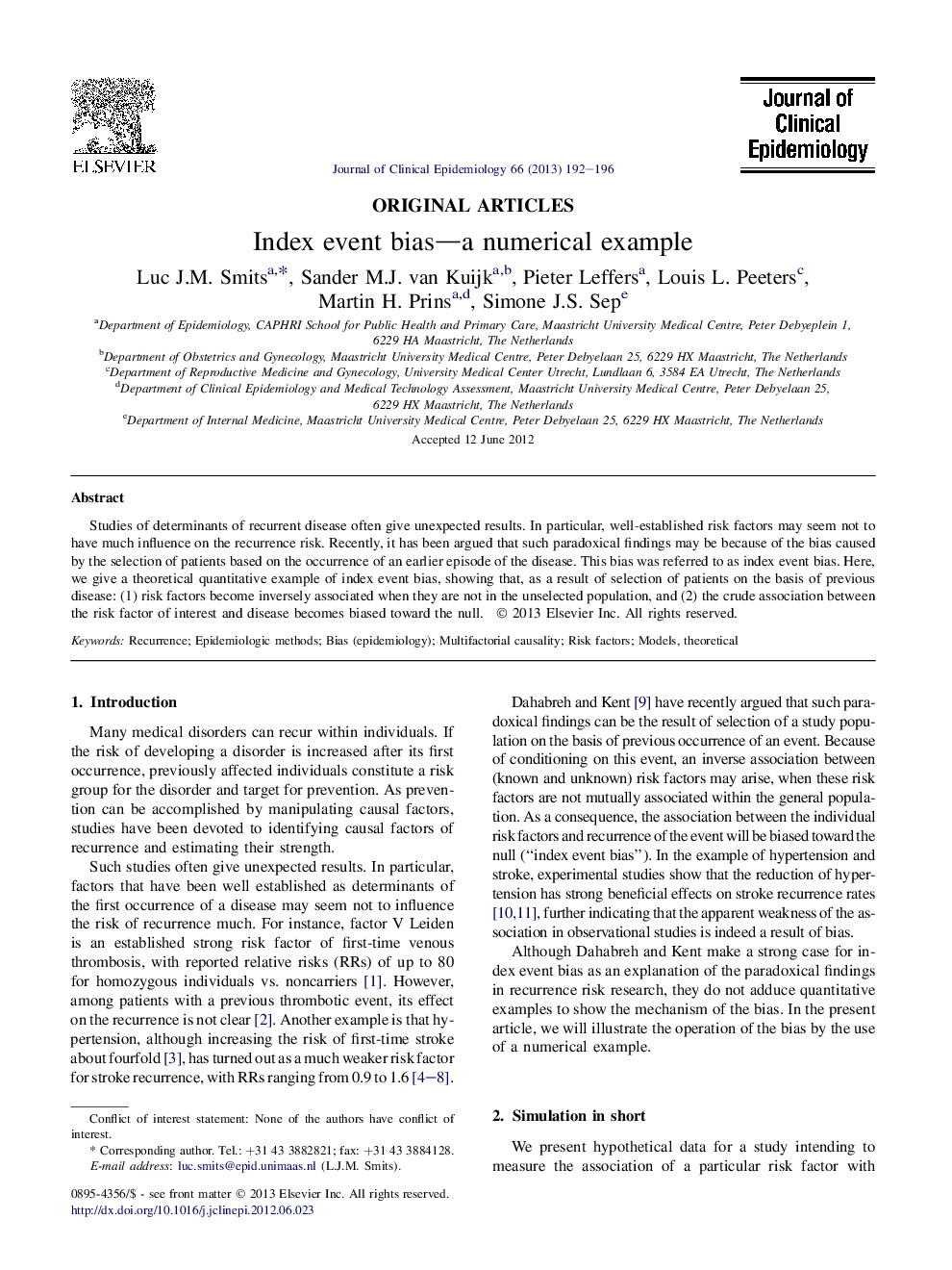| Article ID | Journal | Published Year | Pages | File Type |
|---|---|---|---|---|
| 10513777 | Journal of Clinical Epidemiology | 2013 | 5 Pages |
Abstract
Studies of determinants of recurrent disease often give unexpected results. In particular, well-established risk factors may seem not to have much influence on the recurrence risk. Recently, it has been argued that such paradoxical findings may be because of the bias caused by the selection of patients based on the occurrence of an earlier episode of the disease. This bias was referred to as index event bias. Here, we give a theoretical quantitative example of index event bias, showing that, as a result of selection of patients on the basis of previous disease: (1) risk factors become inversely associated when they are not in the unselected population, and (2) the crude association between the risk factor of interest and disease becomes biased toward the null.
Related Topics
Health Sciences
Medicine and Dentistry
Public Health and Health Policy
Authors
Luc J.M. Smits, Sander M.J. van Kuijk, Pieter Leffers, Louis L. Peeters, Martin H. Prins, Simone J.S. Sep,
